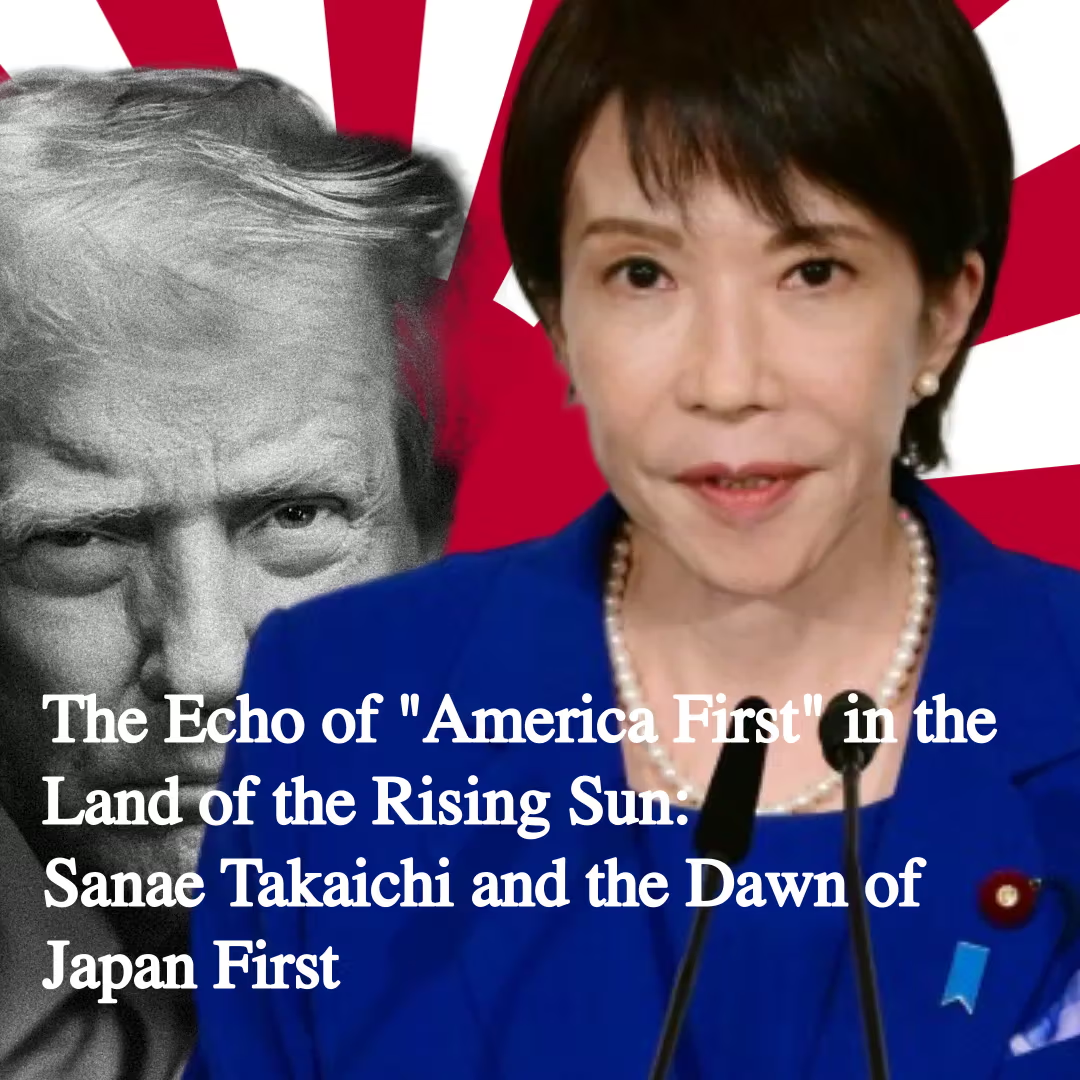By Thu Thet Thar
A political tide that once seemed uniquely American is now unmistakably washing ashore in Japan. In the policies and pronouncements of Sanae Takaichi, a leading and powerful voice in the ruling Liberal Democratic Party, we are witnessing the rise of a distinctly Japanese iteration of a familiar global phenomenon: the nationalist populism championed by Donald Trump. While the cultural contexts are worlds apart, the core tenets of her platform—a fiercely protectionist "Japan First" agenda, a hardline stance on immigration, and a nostalgic appeal to national pride—echo the "America First" doctrine that has reshaped American politics.
For decades, Japan built its postwar identity on quiet multilateralism and economic interdependence. That consensus is now being challenged from within. Takaichi's political ascent signals a pivot toward a more transactional and assertive foreign policy. Her skepticism of international agreements that don't offer a clear, immediate advantage to Japan and her calls to renegotiate past trade deals mirror the transactional diplomacy that defined the Trump administration. This approach, which prioritizes short-term national gain over long-standing alliances and global norms, suggests a Japan less willing to play its traditional role as a cornerstone of the liberal international order and more inclined to go it alone.
This "Japan First" mentality extends most starkly to the issue of immigration. In a nation grappling with a demographic crisis of a rapidly aging and shrinking population, Takaichi has chosen not to embrace immigration as a solution but to frame it as a threat. Her platform is built on calls for significantly tighter border controls and restrictions on foreigners. By casting immigrants as a risk to Japan’s social fabric and cultural homogeneity, she employs the same divisive rhetoric that fueled anti-immigrant sentiment across the United States and Europe. This position overlooks the economic necessity of foreign labor for Japan and instead plays on nationalist anxieties, a classic move from the populist playbook.
Furthermore, Takaichi’s brand of nationalism is deeply rooted in a particular vision of Japanese identity and history. A staunch conservative, her regular visits to the controversial Yasukuni Shrine and her alignment with revisionist views on Japan’s wartime past are not just personal convictions; they are political statements.
To be clear, Sanae Takaichi is not a carbon copy of Donald Trump. Her politics are a product of Japan's unique history and its own conservative traditions. Yet, to ignore the striking parallels would be to miss the larger global trend. The formula of economic protectionism, stringent immigration policies, and fervent nationalism has proven potent worldwide.
As the world navigates a landscape where "America First" is once again the stated policy of the White House, the emergence of a "Japan First" advocate like Takaichi is a sign of the times. It represents a profound shift, one that could see Japan turn inward, fundamentally altering its relationships with its allies and its position on the global stage. The sun is rising on a new, more assertive, and more nationalist Japan, and its silhouette looks remarkably familiar.
-end-


